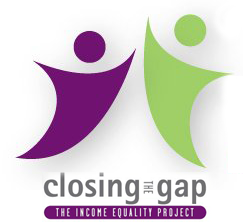
Polls are showing that inequality is a top voter concern (Roy-Morgan and UMR Polls) The income equality group Closing the Gap is urging New Zealanders to push parties and candidates hard on inequality in the last few weeks of the election campaign.
Spokesperson Peter Malcolm said New Zealanders see the harms around them every day — from homelessness to child poverty to teen suicide — and all of us need to make clear we want serious action from the next Government.
“At Closing the Gap, we’re really heartened by surveys showing how much New Zealanders care about inequality, and it’s clear to us that their concern is making a difference to party policies,” he said.
Mr. Malcolm said some parties were coming up with some good initiatives around things like building more social housing and raising benefit levels, but voters needed to keep the pressure on.
“We need firm commitments to raise taxes on the rich — higher income taxes and wealth taxes — as well as to boost the pay of low income earners, who right now simply can’t earn enough to feed and house their families,” he said.
As researcher Max Rashbrooke told us, since the mid-1980s, the inflation-adjusted annual incomes of the poorest 10th of New Zealanders have increased by no more than $2,000 while those of the richest 10th of New Zealanders have increased by $60,000.
Growth has delivered inflation and hard times rather than prosperity to people at the bottom of the barrel. All of us bear the burden of that outcome, and that has to change. New Zealanders get it. We have to make sure every candidate running for office gets it, too.





Currently, around 5000 people are on the waiting lists for a state house.
The Salvation Army’s report (Taking Stock) estimates New Zealand will need to build between 2000 and 2500 additional social houses each year, for at least the next decade to meet the growing demand and address the current shortfall.
Yet, Labour are only offering to build a minimum of a 1000 a year.
National has allocated $36m a year for the next four years, which the Salvation Army’s report estimates will produce a maximum of only 90 additional houses a year.
To date, Housing NZ has only built a net total of 125 houses across New Zealand since June 2009.
What about the Greens?
The Green’s plan would allow Housing New Zealand to retain its dividend and, in addition, would refund its tax, freeing up $207 million in the next financial year to spend on the emergency building of around 450 new state homes.
So despite the rhetoric, as you can see, what’s being offered is vastly insufficient.
Hence, we can expect homelessness and its related ills to worsen over the coming decade due to the woeful commitment of our politicians across the political spectrum.
Therefore, when voting clearly isn’t enough, how are we (the people) going to rectify this? How do we get a political party to do what is obviously required?
We all hear their rhetoric, hence it’s not like they don’t acknowledge the problems exist, yet what’s on offer vastly falls short.
We need to challenge the media to get in behind this to apply ongoing massive public pressure.
We talk about it instead of punching widely on a voting slip.
I’m just going to ignore national.
Labours plan is for low cost first home buyers.
The Greens plan covers emergency housing.
Taken seperatly, then sure. Labour and the Greens looks inadequate.
Considering the MoU finds reason in the Budget Responsibilty guidelines, that allocates $800 million for potential coalition partners and 10 billion for un-announced policy. The money to fund L/G policy is there and top ups available.
But the biggest factor in determining the success in state housing rebuilds are the two year government contracts that see developers low ball everything only to find out a bit later that material cost went up. This is where these treasury contracts come in and applies financial penalties on the developer for not meeting contract specifications. In fact all government contracts have 2 year time horizons with penalties for failing to make good on the governments good, that the government is ostensibly payed to do.
So just because it’s up to 1450 houses each year dosnt mean construction stops if they complete those houses early. It means builders get payed for the year.
This capital charge John Car Key brought in is causing all sorts chaos. Get rid of those and deal with builders and suppliers directly.
Comments are closed.